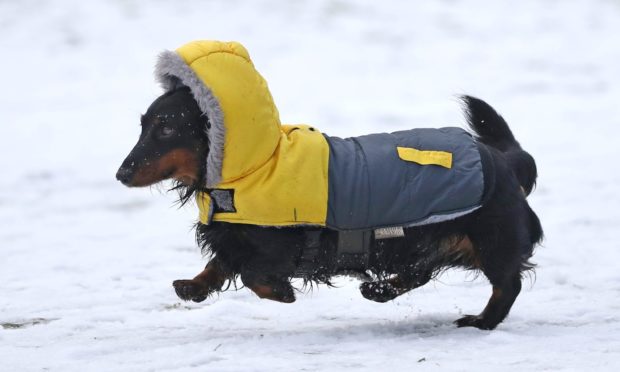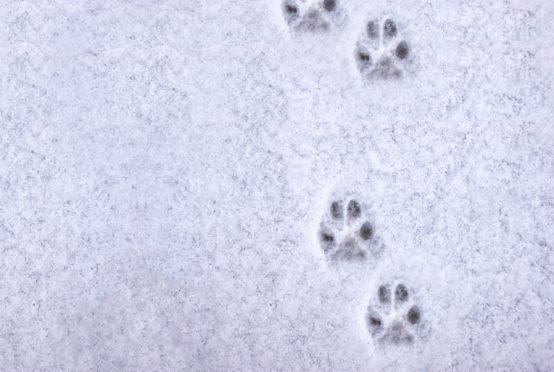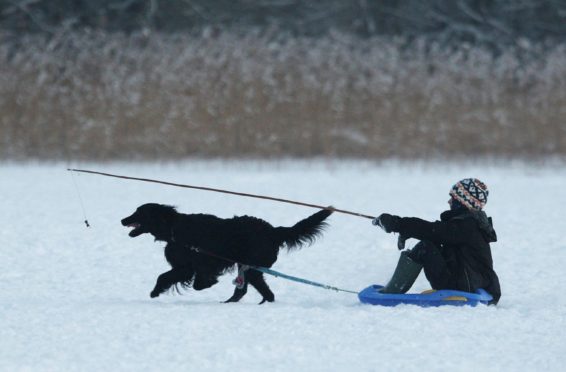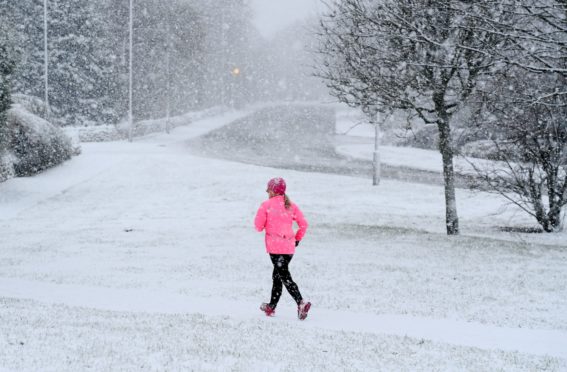Vets have warned north-east residents to make sure their pets stay warm amongst freezing temperatures this week.
Icy conditions and below zero temperatures are expected tonight across Scotland, with the Met Office warning about snow and ice.
The British Veterinary Association (BVA) is urging pet owners to take extra precautions to make sure their dogs, cats and other small pets are kept safe.
Dogs can become ill when left out in the freezing cold, and should be given coats when outside.

Their paws and belly should also be wiped when returning home from a snowy walk to remove any traces of ice or grit.
Older cats should be kept inside during cold spells, and young cats should have easy access to shelter and warmth.
Felines are also more at risk from antifreeze poisoning at this time of year, which can prove fatal so be aware of their surroundings.
Outdoor rabbits and guinea pigs are also vulnerable to the cold and damp.
Owners with outside hutches and runs should make sure the homes of their pets are well-protected from snow, frost, and winter rain.
They should also be given extra bedding for warmth and their water bottle and bowl regularly checked as they can freeze when the temperature drops.
Keepers of flocks of poultry or other livestock should check drinking water sources frequently.
BVA Senior Vice President Daniella Dos Santos said: “Freezing temperatures and icy conditions call for extra precautions to keep our pets safe and warm.
“Dogs and cats should have easy access to shelter and warmth out of the cold, and while dogs will still need exercise, owners should take precautions to protect them from the cold.
“Antifreeze is a huge hazard for cats, so contact your vet immediately if you see signs of poisoning such as vomiting, depression, lack of coordination, seizures and difficulty breathing.
“Snow flurries are no fun for small furries either, with domestic rabbits and guinea pigs vulnerable to hypothermia despite their warm coats.
“Owners should take steps to ensure any outdoor hutches are well-protected from the snow, cold draughts and winter rain.
“If you have any concerns about your pet in this cold weather, consult your local vet for advice.”


